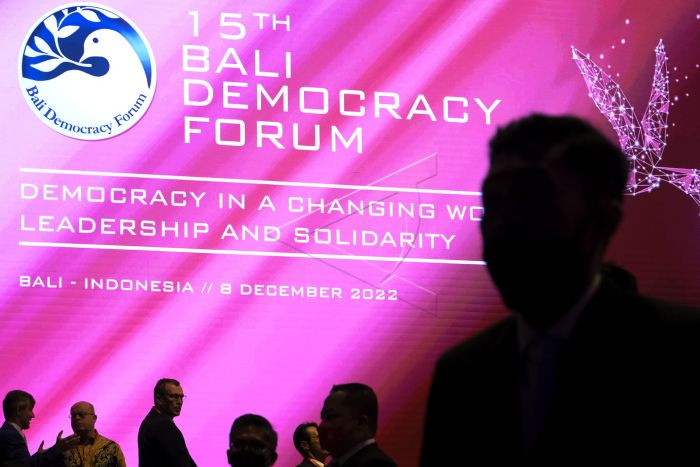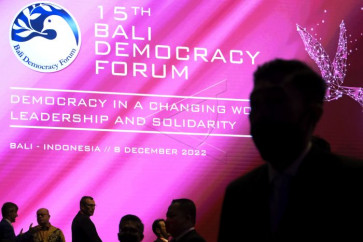Popular Reads
Top Results
Can't find what you're looking for?
View all search resultsPopular Reads
Top Results
Can't find what you're looking for?
View all search resultsPresident Prabowo should make Indonesia a global champion of democracy
By championing democracy as a universal value, not a Western imposition, Indonesia can offer a model that resonates across the Global South.
Change text size
Gift Premium Articles
to Anyone
T
he world is watching to see if Indonesia under newly elected President Prabowo Subianto will reclaim a leadership role in speaking up for democracy both regionally and globally. Indonesia’s longstanding leadership in the Global South, rooted in the history and principles of the Non-Aligned Movement (NAM), a strong commitment to multilateralism and Indonesia’s legacy as a vibrant democracy, offers a compelling basis for Prabowo to prioritize democratic diplomacy as a cornerstone of his foreign policy.
Indonesia’s heritage offers a unique chance to support democracy free from the geopolitical baggage of global powers. The core NAM principles of sovereignty, self-determination and non-intervention reflect Indonesia’s own experience as a post-colonial democracy. By championing democracy as a universal value, not a Western imposition, Indonesia can offer a model that resonates across the Global South.
As 2025 will mark the 70th anniversary of the Asia-Africa Conference, which led to the formation of the NAM, renewed democratic engagement from Indonesia would be a timely symbolic commitment and reinforce Indonesia’s moral authority in international forums. It could counterbalance the global rise of authoritarianism and provide a much-needed voice advocating for strengthening democratic resilience in the face of challenges such as growing inequality, climate change and technological disruption.
President Prabowo’s early moves suggest a more outward-looking foreign policy, with visits to key partners like China, Japan, Malaysia and Australia, and a renewed emphasis on ASEAN. This proactive approach is appropriate at a time when democracy is under strain across the region, from Myanmar’s ongoing crisis to Thailand’s lawfare on political parties.
Indonesia’s regional leadership in ASEAN is critical to addressing these challenges. By supporting democratic transitions in the region, including championing ASEAN’s Five-Point Consensus for Myanmar, a framework for ending violence, fostering dialogue among stakeholders, providing humanitarian assistance and appointing a special envoy to mediate the crisis, Prabowo can solidify Indonesia’s role as a regional anchor for democracy.
Indonesia has already established another robust platform for the promotion of democracy through the Bali Democracy Forum (BDF), launched in 2008 under president Susilo Bambang Yudhoyono (SBY). When the BDF began, Indonesia had just entered its 10th year of democracy after civil unrest overthrew the dictatorship of then president Soeharto in 1998.
The BDF was a groundbreaking initiative, bringing together countries with diverse political systems to discuss democratic practices without imposing prescriptions.



















